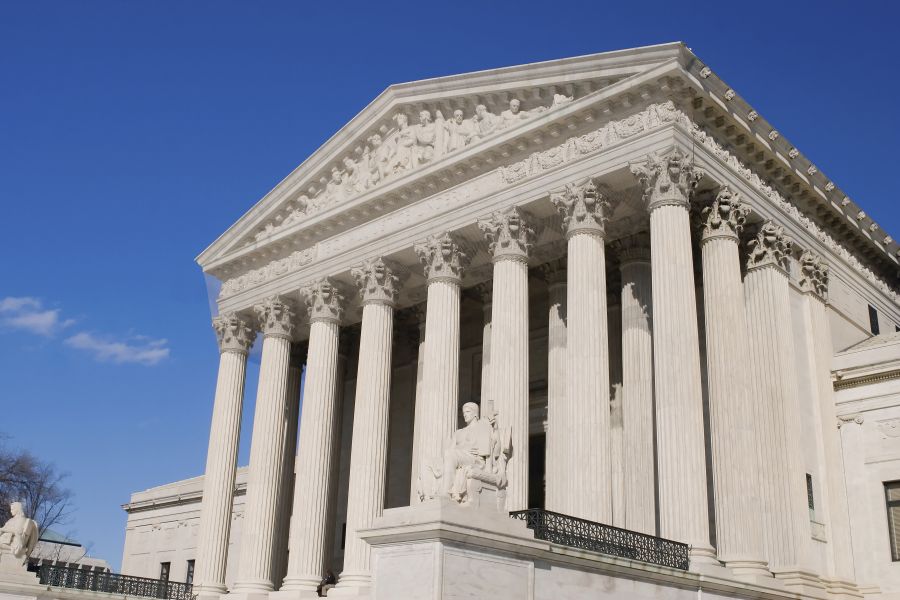Bill of Rights Day: The ‘right’ day to celebrate our freedom
First Five by the Freedom Forum Institute
Dec 17, 2020
GENE POLICINSKI
Download Word doc here.
Our nation’s annual Bill of Rights Day had a bit more reality for more of us in 2020 than in most years, even though it passed again with little-to-no notice from most of us.
The day was created in 1941 to celebrate the Dec. 15, 1791 ratification by the states of the first 10 amendments to the U.S. Constitution. But it quickly faded from view: Its first planned celebration was effectively lost to history in the days following of the Dec. 7 attack on Pearl Harbor and the start of World War II.
The first 10 amendments spell out our rights. They start with the First Amendment’s protection of five core freedoms: Religion, speech, press, assembly and petition.
Nine more amendments guarantee a range of rights, from gun ownership to freedom from unreasonable search and seizure to trial by jury, and reserve all powers not delegated to the federal government to the people or the states.
If we are honest about it, Bill of Rights Day won’t ever become the major focus of holidays like Memorial Day, the Fourth of July or even Labor Day — the timing between Thanksgiving and winter holidays is awkward, for one thing. Much like Constitution Day, in September, it’s not likely to inspire public displays of patriotism, or even a modest number of fireworks displays.
Still, we should be inclined to give it a national nod, or at least a momentary pause to celebrate the freedoms and rights that define who we are as a nation. And then there may be years such as 2020, when those rights and freedoms come into play in unique and varied ways.
Consider: This year has seen more public discussion of government and social policies and practices than in decades. Freedoms at the low end of public identity — assembly and petition — now rival their First Amendment and Bill of Rights brethren on the nation’s political stage and are driving real change.
Among the examples: Ongoing demonstrations and events rooted in the Black Lives Matter movement. Supporters of President Donald J. Trump taking to the streets over his loud but unproven claims of election fraud. COVID-19 pandemic restrictions leading to legal challenges over the extent to which religious liberty shields civil disobedience.
Even outside the realm of government and politics, which was most on the minds of the nation’s founders in proposing both the Constitution and the amendments, we see the power of free expression and protection of core rights to produce change.
Sports teams are private enterprises and thus have their own First Amendment rights to speak in the marketplace of ideas, which in past years has stymied most attempts to force changes in names seen by many as racist and bigoted.
Even Indigenous peoples, who have been denied legal protections, perhaps more than any others in our nation’s history, have been able to demonstrate, write and assemble in protest. Behold The Washington Football Team (formerly the Redskins) and what may become The Cleveland Baseball Team (soon to be the former Indians).
After a mind-numbing series of deaths involving Black men and women and police, people across the nation have taken to American’s traditional public forum — the streets — in massive numbers to demand racial justice and new approaches to law enforcement, much of the energy driven by the May death of George Floyd while being arrested by Minneapolis police.
Results? Just days ago, the Minneapolis City Council shifted $8 million in police funding to other services such as mental health crisis response teams and anti-violence training. Those who opposed those cuts were able to make their voices heard as well: No cuts were made in the numbers of officers in the city.
National Football League games this season are marked by TV commercials calling for racial equity. League fields are now marked with two slogans: “It Takes All Of Us” on one, “End Racism” on the other. Players literally speak with their feet: the “My Cause, My Cleats” campaign displays players’ individual civic causes on their shoes.
The First Amendment and the Bill of Rights certainly do not figure directly in much of the nation’s ongoing conversations with itself. But those rights and freedoms underpin the confidence to have those conversations — however blunt, acrimonious and challenging they certainly can be.
Even if you’re not inclined to celebrate legal concepts and governing documents, the Bill of Rights — that cumulative blueprint for freedoms led off by the First Amendment — merits a hearty “huzzah” now and again.










